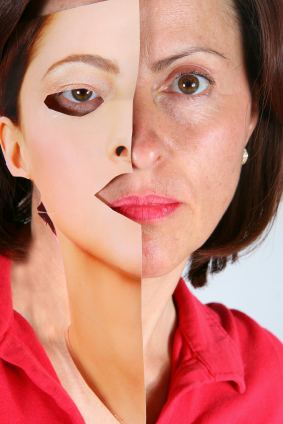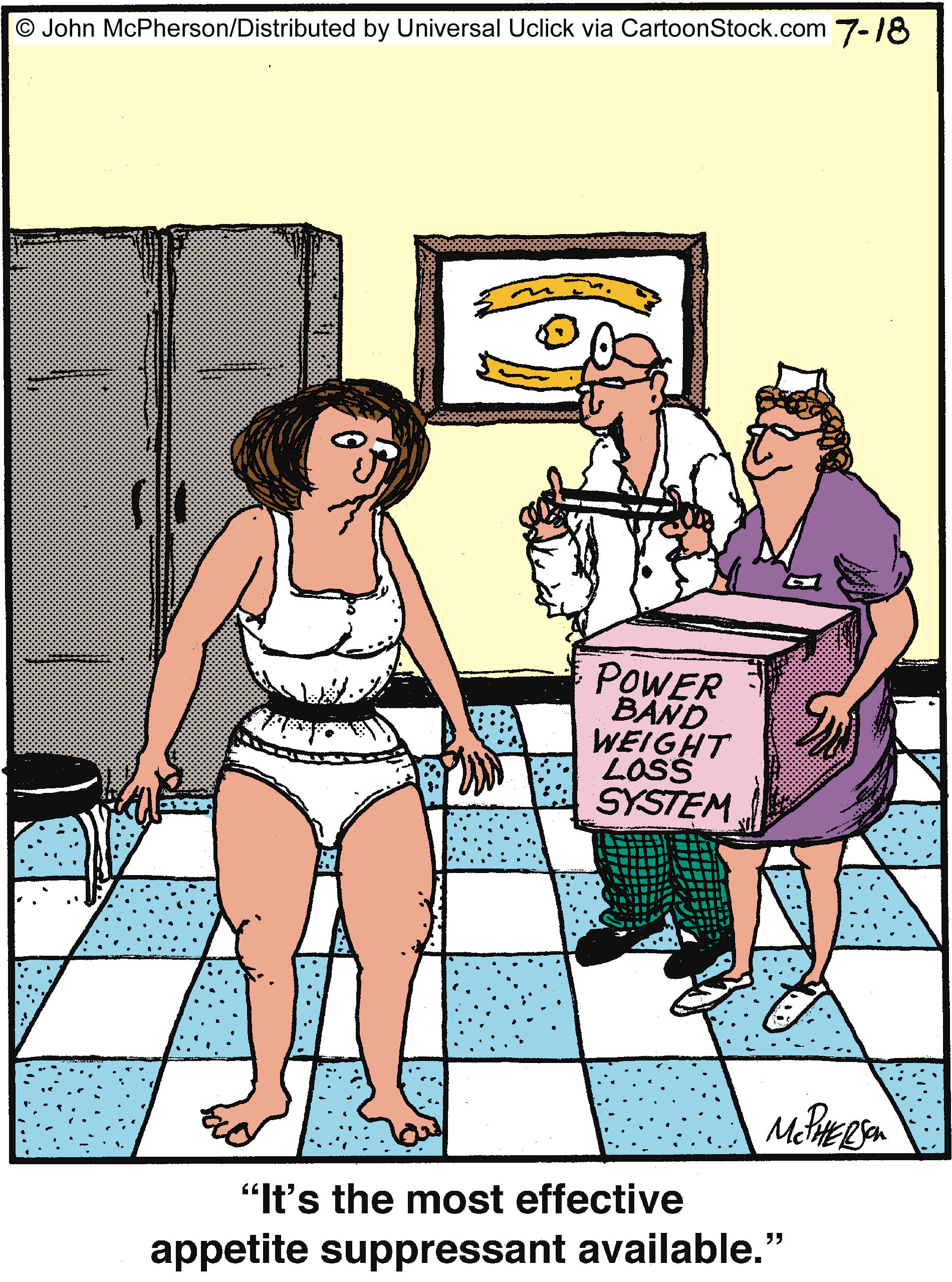Guyside: Don’t trust the media! (Well, completely)
Yesterday, a friend of mine posted a link on her FB profile to a study about births by Caesarean section yesterday. The link, to the site IFLS (or, if you’re a saltymouth like me, I fucking love science), pointed to a study that found “Cesarean delivery may cause epigenetic changes in Babies DNA.”
Her caption: “Great. Something else for me to feel guilty about.”
Now, I know very well that my friend’s line was tongue-in-cheek. But there’s a glint of a problem underneath her tossed-off line.
The study looked at 43 babies, 25 born by vaginal birth and 18 by Caesarean. The researchers theorize that the changes in DNA that take place in Caesarean babies are related to the relative lack of stress they’re exposed to compared to babies being born the “normal” way and the corresponding lack of activation of their immune systems.
But I don’t want to talk about this study — I want to talk about how we all react to studies. Last week I talked about being healthily skeptical of alternative treatments. But we need a healthy skepticism about ALL treatments and research, and we need to ensure we don’t kick ourselves because of our past actions.
It’s easy to look at current dietary, drug, or treatment recommendations and look back at choices you’ve made and see them as wrong or ill-advised. For my friend, it was having a C-section when her child was born. First off, there’s nothing that can be done about the past. Even if this study were utterly correct, there’s no remedial action she can take.
Second off, there’s the nature and limitations of any study you read or hear about. This study, for example, has a very small sample size, leading to questions about how much the findings can be extrapolated. Also, in the IFLS article about the study, here are sentences from the first and last paragraphs: “So far there has not been enough follow up to know whether the effects are long lasting… He pointed out that epigenetic changes can be either temporary or permanent and it is too early to tell whether the effects he identified will last.”
So in this case, based on 18 test subjects, researchers observed a change in gene expression at birth. Is this related to long-term health effects? Maybe. Do we know for sure? No. Does this in any way help someone who was born via Caesarean? No.
There are thousands of pieces of research published each year that might relate to a health condition you possess — anything from cancer to bunions to myopia. When you see a news story about some piece of research, for your own good be careful about your reactions and your actions. Scientific research is a mosaic. You can’t see the whole picture without stepping back and looking at all the pieces.
Read MoreGuyside: How old = not giving a crap anymore?
When I was a kid, I was a shy kid. Not shy enough to be tortured by loneliness. But a bit shy in specific contexts. I was fine playing saxophone in a concert band or in a marching band. I was cool with speaking in public or being part of the debating society. I would speak up in class, even crack a joke from time to time.
But there were things that just hit all my buttons. I first took guitar lessons when I was about 11. But other than an awkward and brief performance to get my one and only Cub Scout badge (before I quit for unrelated reasons), I went through YEARS where I only played in my room. And I NEVER sang.
That years was actually decades. And then, things changed. Why? Well… the summer I turned 40 I got diagnosed with bladder cancer. That was not a good summer. And one of the things that I decided to do to follow my heart a little more, to stop putting off ’til someday, was to start hosting house concerts. Those are gatherings in which you invite a professional musician to perform a show in your house, then invite friends, neighbours and colleagues to come and pay the performer for his or her or their work.
Once we decided to do that, we set a date in February, my partner’s birth month. And then I decided to open the show with a couple of songs. Which I had never done before. Not an open-mike night, not a house party, not a campfire.
It was one of the most frightening experiences of my life. I stood in front of my partner, some of her and our friends, her colleagues, with a guitar and an amp and a microphone in front of my mouth and tried to get through two songs. It was petrifying.
I still struggle with stage fright. But I’ve done a fair amount of playing in front of other people since then. A few years after that, we were on our way to a friend’s cottage for a long weekend. “Bring a guitar,” he said. “We’ve never had a guitar at our cottage!”
One afternoon that weekend, I found myself on the dock, sitting in a Muskoka chair, noodling around and singing, my eyes closed against the sun’s rays. When I stopped and looked around, our host’s two teenage daughters and their friends were clustered around me. I then realized why smarter teenage boys than me played guitar in PUBLIC, and not in their rooms.
So what’s the point of all this? Well, for the last few weeks, I’ve been raising money for a two-day cycle trip that raises money for cancer research. As part of my fundraiser, I’ve been thanking people who donate more than $100 by finding a song with their name in it, learning it, and recording a Youtube video of it for them on ukulele. That’s led to a story in the local paper, and now to me being asked to do a 15-minute set at a local club as part of another fundraising concert. At a club that calls itself legendary. Yerk.
I still get stage butterflies, and probably always will. But I mostly don’t give a crap. I acknowledge the feelings of anxiety and the fear that I’m going to screw up onstage so badly that I’ll make an ass of myself as simply that — feelings and fears. And it’s happened, for sure. I just give much less of a crap about that possibility.
I have had some help learning those lessons, because the fear of screwing up catastrophically has run through other aspects of my life and led to some bad mistakes. But part of it has just been getting older and realizing that in a lot of cases… it doesn’t matter if you screw up. If I get the chord changes wrong or forget a line at Acoustics for Cancer Awareness, is someone going to ask for their money back? Will they think I’m a horrible person? Probably not. And if they do, imagine what a jerk that makes them!
And the greatest irony of giving less of a crap? Usually, the performance is better. I don’t mean to say we should not strive for excellence, or that we shouldn’t care about performance. But sometimes you just gotta do it and — at least beforehand — stop caring about the end result. Since we’re all getting a bit older, why don’t you join me in giving a crap about fewer and fewer things? It’ll do you good.
Read MoreWednesday Bubble: Want to look years younger? Consider the knife
This headline, which appeared in the LA Times on February 20, says it all:
Plastic surgery does make you look younger, study finds.
Earth shattering, right?
Actually, what struck me most about it is that on a day when scientists were reporting that the reasons that certain conditions associated with aging may be due to changes in the eye (e.g. narrowing of the lens and pupils) responsible for controlling our internal clocks, that headlines touting more nip and tuck were stealing the show.
Not too long ago, I wrote about a survey that was conducted in England that showed that a third of women would give up a year of their lives, forgo part of their salary or a promotion or sacrifice time with their partners to achieve an ideal body weight and appearance. Shortly thereafter, I featured an incredible piece by author D.F. Wolf about ‘anti-aging,’ in which she questions the need to appear young and literally erase our appearance. And right after that, we learned that ‘make-up makes the woman.’
What a perfect trifecta of misconstrued values about our worth as women.
That’s why this particular study is drawing a few questions in my mind. Published online in the Archives of Facial Plastic Surgery, it reviews an investigation of 60 patients (of whom 54 were women) between the ages of 45 and 72 who had undergone three different combinations of plastic surgery:
- face and neck-lift
- face and neck-lift, and removal of bags and sagging around the eyes/eyelids
- face and neck-lift, removal of bags/sagging around the eyes/eyelids and a forehead lift
The goal of the study? To prove that facial surgery not only makes you look better but definitively alters how others perceive you. To achieve this, they asked first-year medical students to view the before and after photos of the patients and then estimate their age. The researchers found that prior to surgery, the students estimated that on average, patients were 1.7 years younger than their actual chronological age, and after surgery, 8 years younger. By group, the raters perceived patients who had had the most facial surgery as the youngest.
The researchers claim that this study was conducted in order to provide a means by which facial surgery can be quantified However, what it doesn’t address is the degree to which attitude, self-awareness and a general sense of wellbeing also influence how we look and how others perceive us. Moreover, while surgeons now have “the ability to resuspend, excise, tuck, inject and augment, the question remains: ” how do you achieve a ‘look’ without robbing that person of their unique attributes or characteristics?
We live in a society where aging is a four letter word and fountain of youth is an abused. elusive goal, where teenagers often model in lieu of actual adults and where photoshop and air brushing is the rule and the exception. The message inherent in this study and in the headlines that appeared on the web that day is that more plastic surgery= more pleasure. However, how many of you recall news of Madonna’s new, new face or Jocelyn Wildenstein’s frightening New York Magazine cover photo in 1997? When does ‘more’ become ‘too much?’
Admittedly, there are days I look in the mirror and am shocked by the reflection staring back at me. And days I’d consider a nip and a tuck. But to what end? Am I trying to achieve a youthful glow or a bonefide bonfire of juvescence?
Maybe it’s time to step back, really step back, and consider the message that we are sending to ourselves and to the girls and young women in our lives. Don’t we owe it to us..and to them?
Read MoreBringing back the woo-woo…or the ‘ain’t no woo woo.’ Mindfulness, meditation and stress
Are you familiar with the end of the year crunch? I’m in the midst of it and although life is scheduled to slow starting next week, I am finding that I am having difficulty keeping up. So, today, I’m bringing back the woo woo in hopes that it might influence my own inability to calm down the adrenals right now.
Apologies for being self-serving. To be truly honest, this is one of my favourite posts of this year so I’m bringing it back. One word at a time. Let’s start with the first:
Relaxation.
It’s so elusive for many of us. And yet, so important to our overall health and wellbeing. In fact, researchers are finally discovering how relaxation actually counters changes that occur in our bodies that result from exposure to constant stressors.
For decades, Dr. Herbert Benson, founder of the Mind-Body Institute in Cambridge, MA and an associate professor at Harvard University, has been writing about the relaxation response, a “mind-body intervention that elicits deep changes in the physical and emotional response to stress.” Strategies that elicit the relaxation response include meditation, yoga, tai chi, Qi gong, deep breathing, controlled muscle relaxation and guided imagery. And although many would like to point to the “woo woo” factor at-play, an evolving and wide body of published literature is indicative of how interested the medical community is in the mid-body connection and the positive changes that these practices promote, including a slowing or heart rate, a reduction in blood pressure, improvements in blood sugar and fats, and even boosts in our immune system. However, what has long eluded researchers is what actually happens in the body to achieve these improvements.
In a novel study published in 2008 in PLoS ONE, Dr. Benson and his colleagues looked closely at 19 volunteers who had practiced relaxation response strategies (e.g. meditation, yoga, repetitive prayers) for as long as 20 years and compared them to 20 novices, individuals with no relaxation practice experience. These novices were provided with training sessions for 8 weeks that included information about how to reduce daily stress and the relaxation response and a 20 minute, individually-guided session comprising diaphragmatic breathing, a body scan and meditation.For 8 weeks thereafter, the novices then used a 20-minute relaxation CD at home and were asked to review the informational brochures. Blood samples and analysis of gene expression between experienced and novel relaxation practices, and pre- and post-training were then compared.
Importantly, while the researchers observed distinct changes in the genes in experienced relaxation practitioners compared to novices, when the novices started to incorporate relaxation practice into their lives, they also started to express similar positive alterations in their genes. Moreover, these changes are directly related to how cells respond to stress and create free radicals and inflammation that can lead to long-term damage. Additionally, type of relaxation strategy that was practiced was of no important; by achieving a relaxation state, individuals could make positive changes in their cellular structures thought to promote health.
Both inner and outer psychological states and environmental factors play a role in how women experience peri and post-menopause, their self-esteem, attitudes and severity of symptoms. If a daily practice of some sort of relaxation strategy can actually alter genes in a way that improves health and well-being, why can’t that daily practice also improve the menopausal/midlife experience?
While I’ve long embraced the idea, I’ve never actually made a concerted effort to incorporate some sort of relaxation strategy into my daily activities. I’m going to change that. Ain’t no woo woo but a woot woot so far as I can tell.
Read MoreStress eating? Spare Tummy Tire? Try a little mindfulness…
Mindfulness. It keeps popping up in different areas of health. Last time I posted about mindfulness training, it was within the context of hot flashes and how training your mind to reduce stress can influence how hot flashes are experienced. But what about stress eating?
Many women (and men) turn to emotional eating when they are stressed. And unfortunately, when it comes to weight gain, many of the most serious health affects of excess weight tend to be linked to that roll around the tummy area. In fact, abdominal (or visceral) obesity produces inflammation in the body that can increase the risk for diabetes and heart disease. In women in particular, who may be prone to weight gain in their abdominal area due in part to hormone fluctuations, it’s a double-edged sword. Add the fact that chronic stress increases levels of cortisol, which in turn, mobilizes the migration of fat cells to the midsection, and well, it’s a disaster in the waiting.
As I have written previously, cortisol is a hormone that is secreted by the adrenal glands. Its primary role in the body is to regulate energy (by producing blood sugar or metabolizing carbohydrates, protein and fats) and mobilize it to areas where is it most needed so, cortisol levels tend to peak in the early morning and then gradually decline throughout the day. Research has shown, however, that women have higher cortisol levels than men, and that certain women –especially those with greater amounts of abdominal fat — may be reacting to a large disruption in the release of cortisol that causes a greater than normal difference between morning and evening levels of the hormone. This disruption is believed to be related, at least in part, to exposure to prolonged physical and mental stress. This psychological component is huge, because it tends to trigger the desire to consumption of food that is high in fat and/or sugar, which also tends to promote abdominal weight gain.
How do you break the cycle?
Researchers are now saying that mindfulness may be an important strategy to beat the bulge and the stress. In fact, whey they looked at the effects of a program that focused on interrupting habitual thoughts, emotions and behaviors, that is exactly what they found.
In this small exercise, 24 overweight and obese women not yet in menopause learned to use guided meditation as a way to introduce mindful eating (i.e. paying attention to their physical sensations of hunger, stomach fullness, taste satisfaction and food cravings). They were also taught to be more aware of emotional eating triggers and negative emotions as well as to be more loving and accepting of both themselves. Over nine weeks, they were able to share their challenges, concerns and experiences and then learned new meditations to overcome what they felt were roadblocks in their progress. During the same four week period, 23 women were placed on a waiting list for comparison purposes.
Regularly engaging in mindfulness training set these women off on the right foot upon awakening and in fact, lowered their cortisol levels in the early am hours. What’s more, women who reported having the greatest improvements in their response to stress and emotional eating triggers tended to have the largest reductions in abdominal fat. Additionally, reductions in waking cortisol levels were related to reductions in abdominal fat as well.
Mind you, the women in this particular study were premenopausal, namely because the researchers say that hormonal declines naturally lead to deposits of fat in the midsection. However, if psychological stress compounds weight gain in this area as much as it affects overall wellbeing and menopausal symptoms, it might be worthwhile considering if incorporating ‘a little mindfulness’ into one’s life could help shift fat away from the abdomen as well. It’s an interesting idea and definitely worth exploring…especially as we move into what many regard to be the most stressful and eating laden season of the year: the holidays!
Try a little mindfulness. Not only can it benefit your brain but your tummy might reap the benefits as well.
Read MoreFeeling anxious? It may be those hot flashes!
Researchers say that there may be a link between hot flashes and certain types of anxiety. In fact, hot flash symptoms — increased heart rate and feeling flushed — have been shown to mimic feelings associated with somatic anxiety, i.e. butterflies in the stomach and tension (as opposed to affective anxiety, which people feel panicked or afraid or nervous).
Importantly, data have shown that as much as 8 months before premenopausal women start experiencing or reporting hot flashes, their scores on an anxiety index are off the charts, which means that constant butterflies or tension may be predictive of the move into menopause. The reason this is important is that they may be steps you can take now to address symptoms as they start to emerge, yoga and deep breathing for example, which not surprisingly, are often recommended to address anxiety symptoms.
The latest bit of information to hit research circles involves a study of 80, healthy, well-functioning menopausal women who were asked to keep a daily diary on hot flashes or night sweats (defined as a feeling of warmth or heat accompanied by sweating, pressure or rapid heartbeat occurring while awake or during sleep). In the diary, participants were asked to record how often hot flashes occurred over a one-week period as well as their severity. They were also asked to rate any symptoms of anxiety based on how often they occurred.
The results?
Higher scores of anxiety related to tension and butterfly-like feelings but not to panic or nervousness were significantly associated with more severe and frequent hot flashes or night sweats, even when factors such as sleep quality, age and education levels, all which might affect anxiety levels, were factored in. Age in particular is important because hot flashes tend to wean through the menopause as women grown older.
The reason this preliminary research is important is that it is possible that anxiety that women experience during menopause is actually related to hot flashes, rather than a specific mood disorder. By shifting the viewpoint to the true culprit, healthcare practitioners and women alike, might be able to better diagnose and more appropriately address anxiety symptoms, rather than leaning towards prescription mood treatments that are uncalled for.
At the same time, more research is needed. This was a small group of healthy, white women who were asked to self-report hot flashes/night sweats and anxiety symptoms. Although most of the research on hot flashes does rely on self-report, objectivity can be lost. What’s more, because these women were psychologically healthy, it’s hard to apply any conclusions to older women who might be seeking assistance specifically for anxiety.
So, are you feeling anxious? Depending on your age and menopausal status, it might be a harbinger of the flash or due to the flash. Either way, it’s worth considering.
Read More










